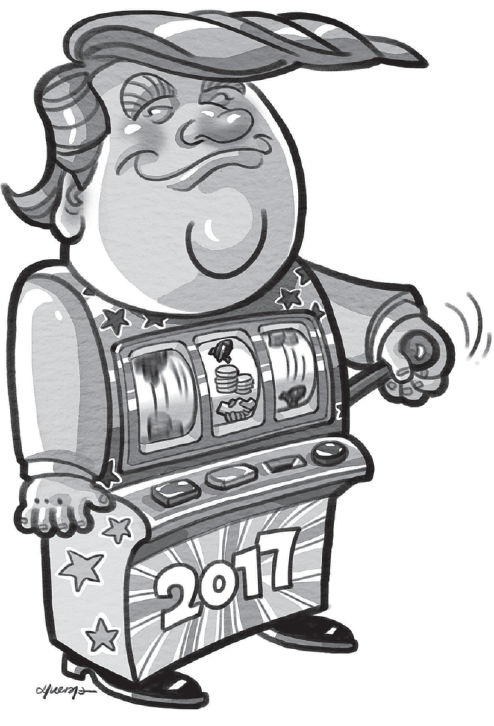Not the trump card Americans need today
 |
| LI MIN/CHINA DAILY |
On Jan 20, 2017, Donald Trump will be inaugurated as the 45th president of the United States. I would hate to say "I told you so", but his election should not have come as a surprise. As I explained in my 2002 book Globalization and its Discontent, the policies we have used to manage globalization have sown the seeds of widespread disaffection. Ironically, a candidate from the same party that has pushed the hardest for international financial and trade integration won by promising to undo both.
Of course, there is no going back. China and India are now integrated into the global economy, and technological innovation is reducing the number of manufacturing jobs worldwide. Trump cannot recreate the well-paying manufacturing jobs of past decades; he can only push for advanced manufacturing, which requires higher skill sets and employs fewer people.
Rising inequality, meanwhile, will continue to contribute to widespread despair, especially among the white voters in Middle America who handed Trump his victory. As economists Anne Case and Angus Deaton showed in their study published in December 2015, life expectancy among middle-age white Americans is declining, as rates of suicides, drug use and alcoholism increase. A year later, the National Center for Health Statistics reported that life expectancy for the country as a whole has declined for the first time in more than 20 years.
In the first three years of the so-called recovery after the 2008 financial crisis, 91 percent of the gains went to the top 1 percent of earners. While Wall Street banks were bailed out with billions of dollars in taxpayer money, homeowners received only a pittance. US President Barack Obama saved not only the banks, but also the bankers, shareholders and bondholders. His economic policy team of Wall Street insiders broke the rules of capitalism to save the elite, confirming millions of Americans' suspicion that the system is, as Trump would say, "rigged".
Obama brought "change you can believe in" on certain issues, such as climate policy; but with respect to the economy, he bolstered the status quo-the 30-year experiment with neoliberalism, which promised that the benefits of globalization and liberalization would "trickle down" to everyone. Instead, the benefits trickled up, partly owing to a political system that now seems to be based on the principle of "one dollar, one vote", rather than "one person, one vote".
Rising inequality, an unfair political system, and a government that spoke as if it was working for the people while acting for the elites created ideal conditions for a candidate like Trump to exploit. Though wealthy, Trump is clearly not a member of the traditional elite, which lent credence to his promise of "real" change. And yet it will be business as usual under Trump, who will adhere to Republican orthodoxy on taxation and, by appointing lobbyists and industry insiders to his administration, has already broken his promise to "drain the swamp" in Washington, DC.






















